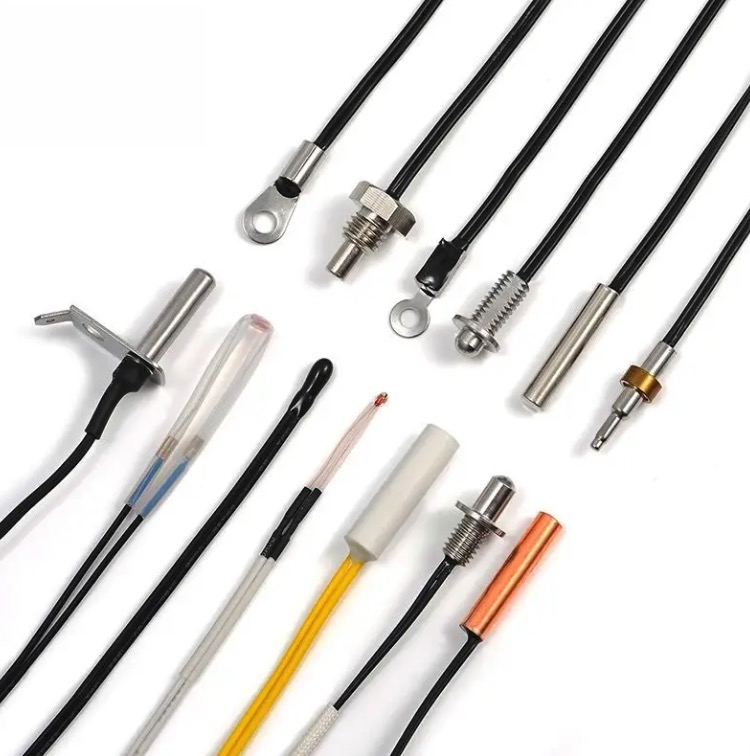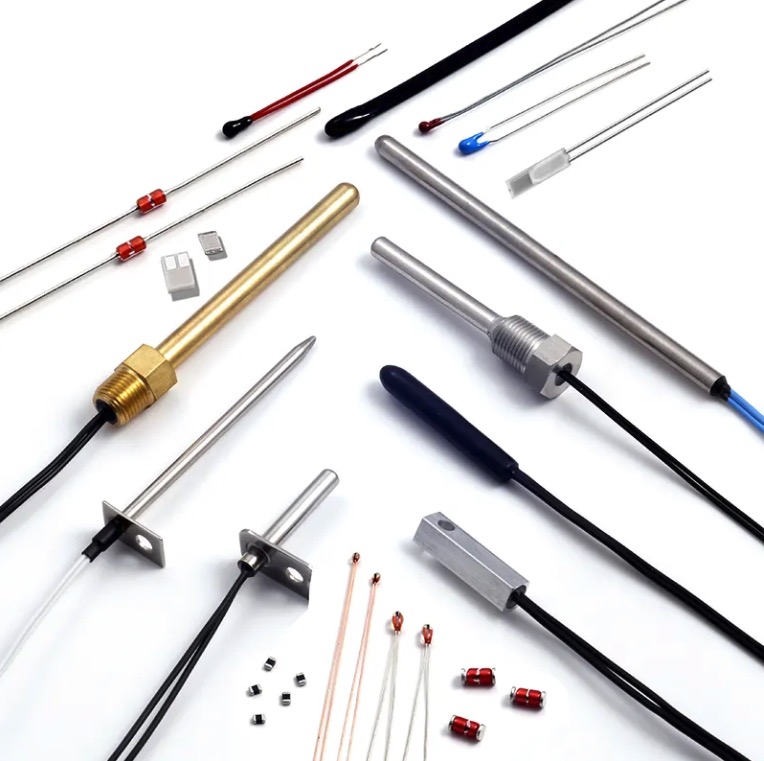Silicon Diode Temperature Sensor – Revolutionizing Temperature Measurement
Abstract:
In this article, we will explore the fascinating world of silicon diode temperature sensors and their pivotal role in revolutionizing temperature measurement. From their inception to their widespread use in various industries, we’ll delve into the intricate details of these sensors and uncover the benefits they offer. So, fasten your seatbelts as we embark on a journey of discovery!
Table of Contents:
1. Introduction
2. Silicon Diode Temperature Sensor: The Basics
3. Advantages of Silicon Diode Temperature Sensors
4. Applications of Silicon Diode Temperature Sensors
5. Choosing the Right Silicon Diode Temperature Sensor
6. Conclusion
1. Introduction
When it comes to accurate temperature measurement, precision is key. This is where silicon diode temperature sensors shine. These remarkable devices have taken the field of temperature sensing by storm, providing unparalleled accuracy and reliability. In this article, we will explore the inner workings of silicon diode temperature sensors and how they have transformed temperature measurement across various industries.
2. Silicon Diode Temperature Sensor: The Basics
Silicon diode temperature sensors are based on the principle that the forward voltage drop across a silicon diode is directly proportional to temperature. As the temperature changes, so does the forward voltage drop, allowing for precise temperature measurement. These sensors are typically small, affordable, and easy to integrate into existing systems, making them a popular choice for temperature monitoring applications.
3. Advantages of Silicon Diode Temperature Sensors
Silicon diode temperature sensors offer numerous advantages over other temperature measurement techniques. Firstly, they provide high accuracy, with tolerances as low as ±0.1°C. Secondly, they have a wide temperature range, capable of measuring from -55°C to +150°C, making them suitable for both extreme cold and hot environments. Additionally, silicon diode temperature sensors exhibit excellent long-term stability and have a fast response time, enabling real-time temperature monitoring.
4. Applications of Silicon Diode Temperature Sensors
The versatility of silicon diode temperature sensors makes them suitable for a wide range of applications. Some common uses include:
– HVAC systems: Silicon diode temperature sensors play a vital role in maintaining optimal heating, ventilation, and air conditioning systems by accurately measuring ambient temperature.
– Industrial processes: These sensors are indispensable in industrial settings, where precise temperature control is crucial for optimizing production processes and ensuring product quality.
– Medical equipment: Silicon diode temperature sensors are essential components in medical devices, such as incubators and blood analyzers, where maintaining accurate temperatures is critical.
– Automotive industry: From engine management to climate control systems, silicon diode temperature sensors are found in various automotive applications, ensuring efficient operation and passenger comfort.
5. Choosing the Right Silicon Diode Temperature Sensor
Selecting the appropriate silicon diode temperature sensor for your application requires careful consideration. Factors to consider include temperature range, accuracy requirements, response time, package type, and interfacing capabilities. By evaluating these factors, you can ensure that the chosen sensor meets your specific needs and delivers reliable temperature measurement.
6. Conclusion
Silicon diode temperature sensors have revolutionized temperature measurement, offering unparalleled accuracy, versatility, and reliability. Their widespread use across various industries attests to their effectiveness in meeting temperature monitoring requirements. Whether it’s maintaining ideal conditions in HVAC systems or optimizing industrial processes, silicon diode temperature sensors continue to play a pivotal role in ensuring precise temperature control. Embrace this technological marvel, and unlock the potential for enhanced temperature measurement in your applications.
Remember, when it comes to temperature measurement, silicon diode temperature sensors are the perfect choice!
Note: This article is for informational purposes only and does not constitute professional advice. Always consult with experts in the field for specific guidance related to your application requirements.
HTML Output:
Silicon Diode Temperature Sensor – Revolutionizing Temperature Measurement
Abstract:
In this article, we will explore the fascinating world of silicon diode temperature sensors and their pivotal role
in revolutionizing temperature measurement. From their inception to their widespread use in various industries,
we’ll delve into the intricate details of these sensors and uncover the benefits they offer. So, fasten your
seatbelts as we embark on a journey of discovery!
Table of Contents:
- Introduction
- Silicon Diode Temperature Sensor: The Basics
- Advantages of Silicon Diode Temperature Sensors
- Applications of Silicon Diode Temperature Sensors
- Choosing the Right Silicon Diode Temperature Sensor
- Conclusion
1. Introduction
When it comes to accurate temperature measurement, precision is key. This is where silicon diode temperature
sensors shine. These remarkable devices have taken the field of temperature sensing by storm, providing
unparalleled accuracy and reliability. In this article, we will explore the inner workings of silicon diode
temperature sensors and how they have transformed temperature measurement across various industries.
2. Silicon Diode Temperature Sensor: The Basics
Silicon diode temperature sensors are based on the principle that the forward voltage drop across a silicon diode
is directly proportional to temperature. As the temperature changes, so does the forward voltage drop, allowing for
precise temperature measurement. These sensors are typically small, affordable, and easy to integrate into existing
systems, making them a popular choice for temperature monitoring applications.
3. Advantages of Silicon Diode Temperature Sensors
Silicon diode temperature sensors offer numerous advantages over other temperature measurement techniques. Firstly,
they provide high accuracy, with tolerances as low as ±0.1°C. Secondly, they have a wide temperature range, capable
of measuring from -55°C to +150°C, making them suitable for both extreme cold and hot environments. Additionally,
silicon diode temperature sensors exhibit excellent long-term stability and have a fast response time, enabling
real-time temperature monitoring.
4. Applications of Silicon Diode Temperature Sensors
The versatility of silicon diode temperature sensors makes them suitable for a wide range of applications. Some
common uses include:
- HVAC systems: Silicon diode temperature sensors play a vital role in maintaining optimal heating, ventilation,
and air conditioning systems by accurately measuring ambient temperature. - Industrial processes: These sensors are indispensable in industrial settings, where precise temperature control
is crucial for optimizing production processes and ensuring product quality. - Medical equipment: Silicon diode temperature sensors are essential components in medical devices, such as
incubators and blood analyzers, where maintaining accurate temperatures is critical. - Automotive industry: From engine management to climate control systems, silicon diode temperature sensors are
found in various automotive applications, ensuring efficient operation and passenger comfort.
5. Choosing the Right Silicon Diode Temperature Sensor
Selecting the appropriate silicon diode temperature sensor for your application requires careful consideration.
Factors to consider include temperature range, accuracy requirements, response time, package type, and interfacing
capabilities. By evaluating these factors, you can ensure that the chosen sensor meets your specific needs and
delivers reliable temperature measurement.
6. Conclusion
Silicon diode temperature sensors have revolutionized temperature measurement, offering unparalleled accuracy,
versatility, and reliability. Their widespread use across various industries attests to their effectiveness in
meeting temperature monitoring requirements. Whether it’s maintaining ideal conditions in HVAC systems or optimizing
industrial processes, silicon diode temperature sensors continue to play a pivotal role in ensuring precise
temperature control. Embrace this technological marvel and unlock the potential for enhanced temperature measurement
in your applications.
Note: This article is for informational purposes only and does not constitute professional advice. Always consult
with experts in the field for specific guidance related to your application requirements.
“`
Note: Please save the provided HTML output as an HTML file and open it in a web browser to view the formatted article.





